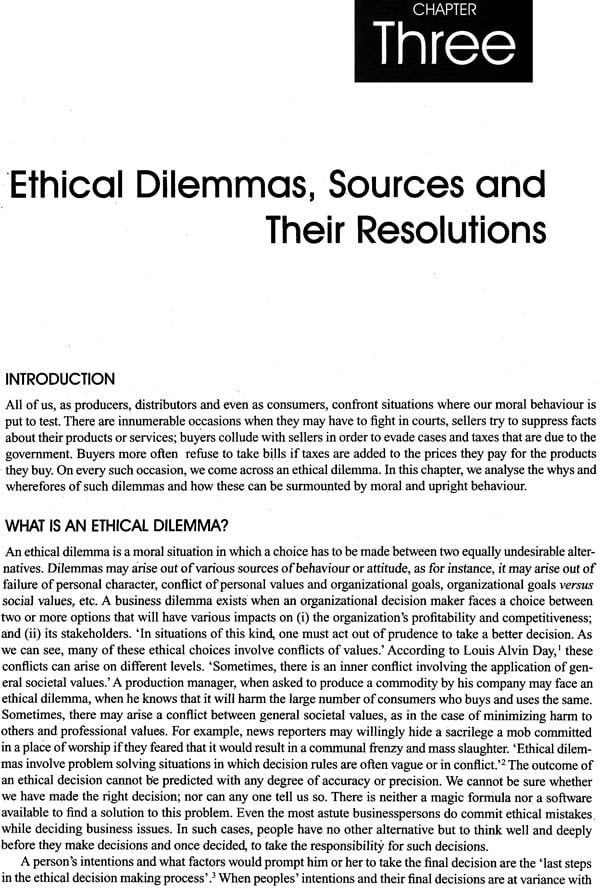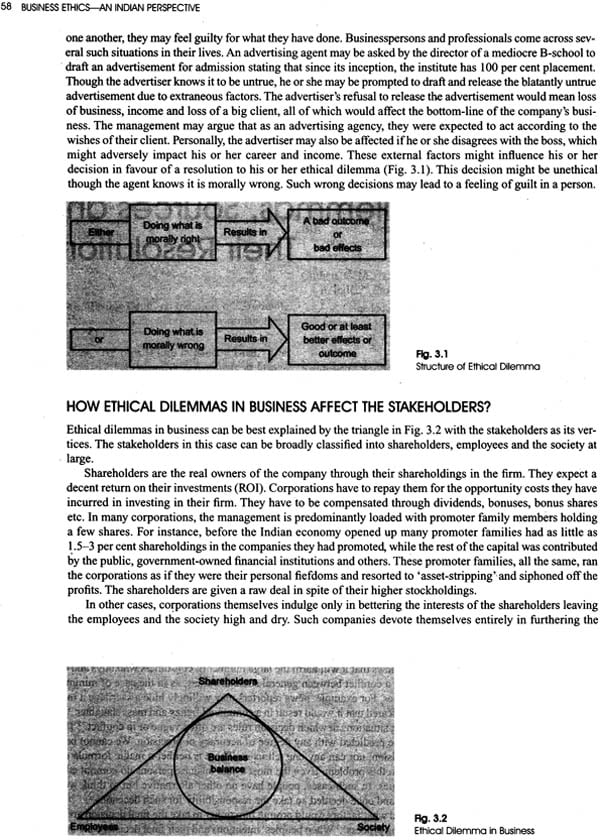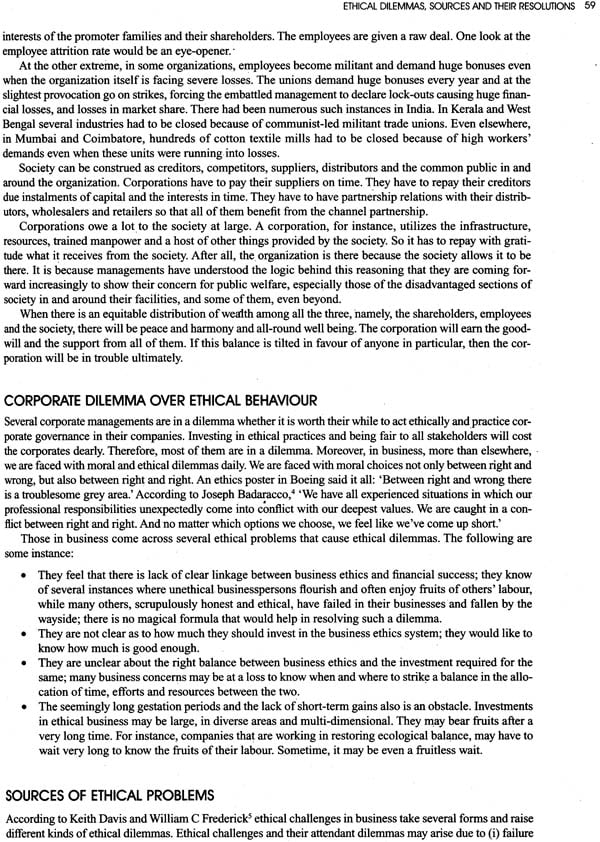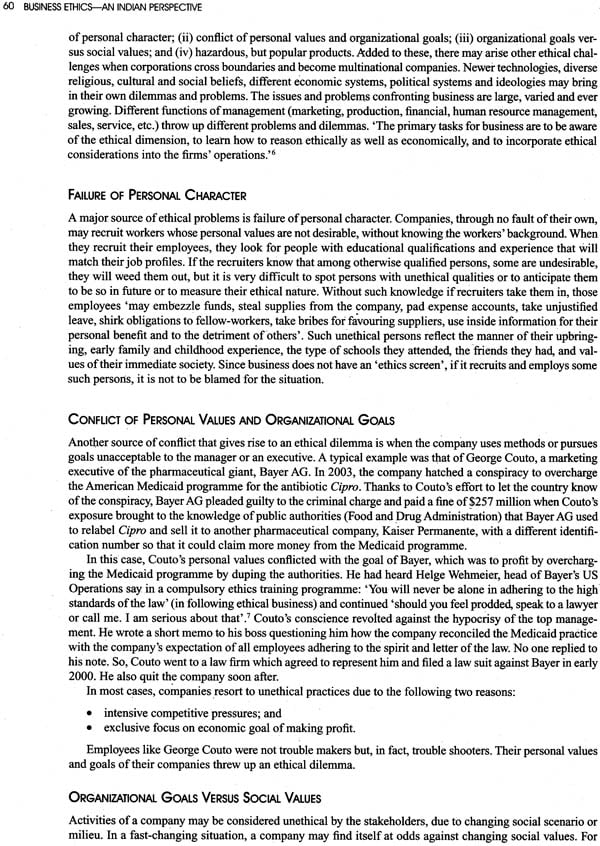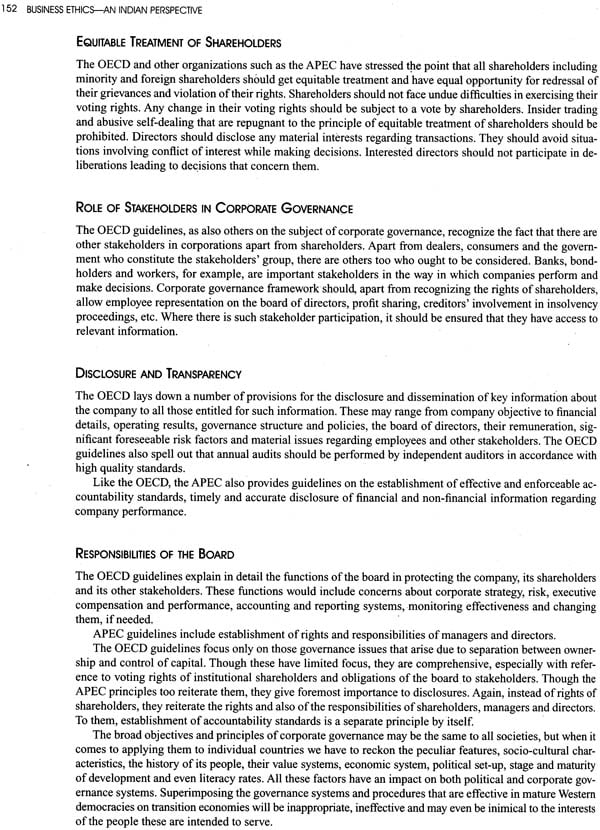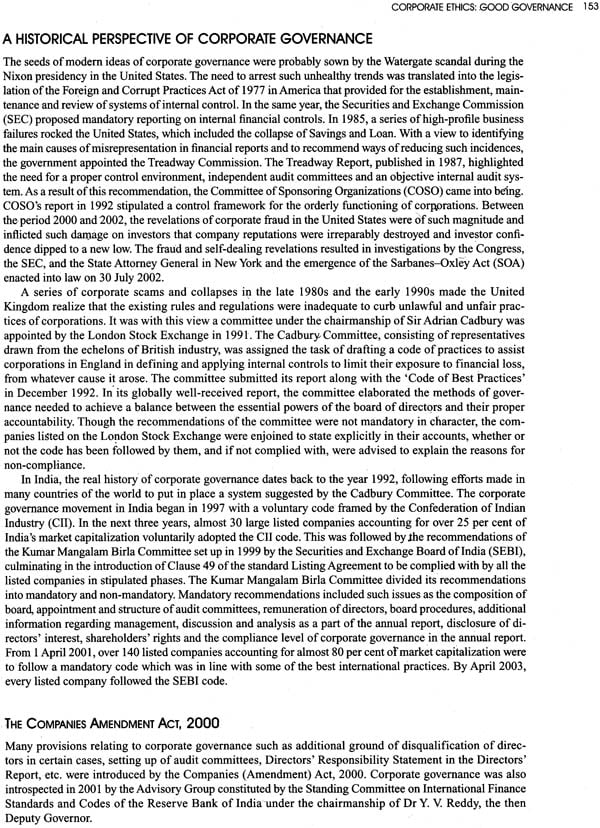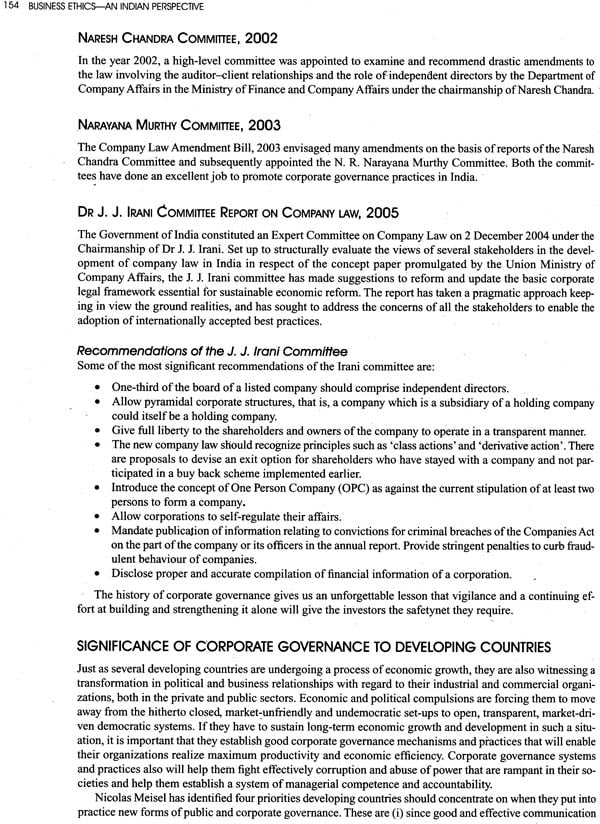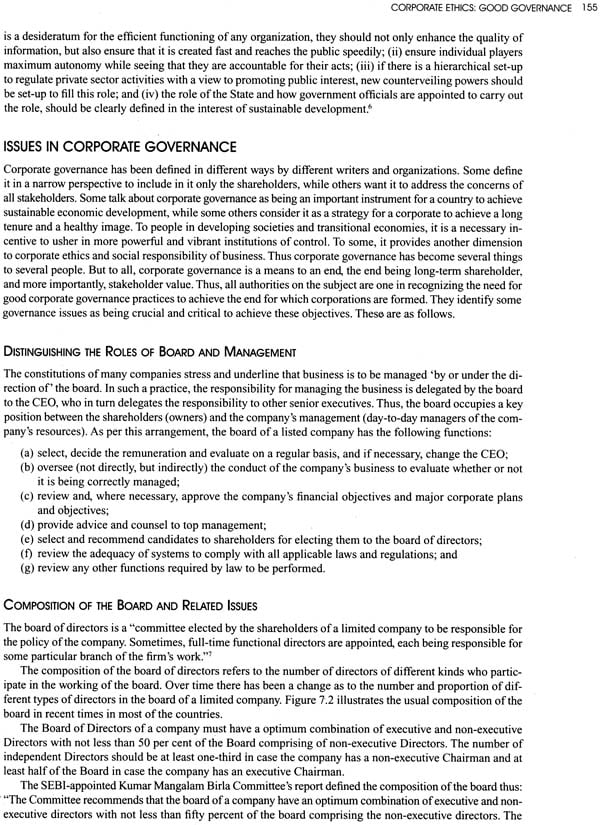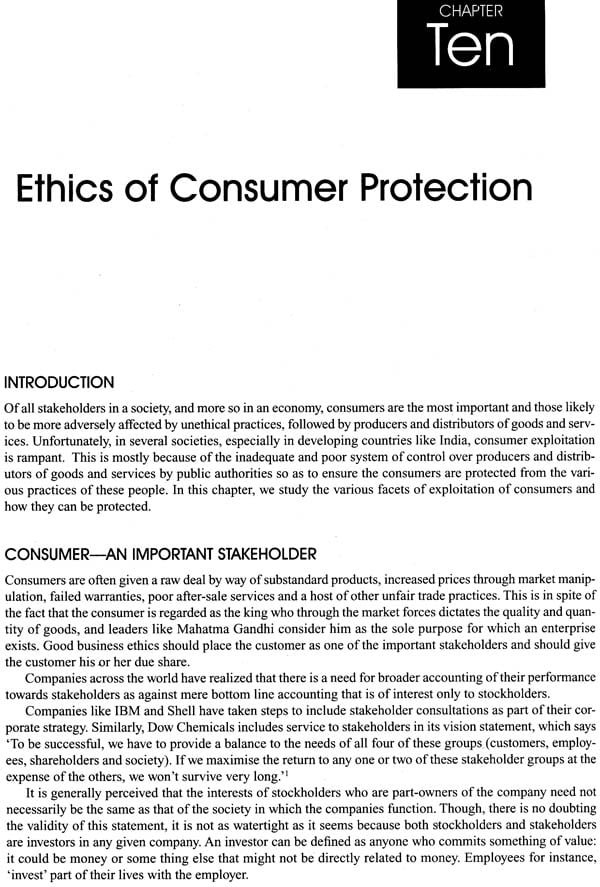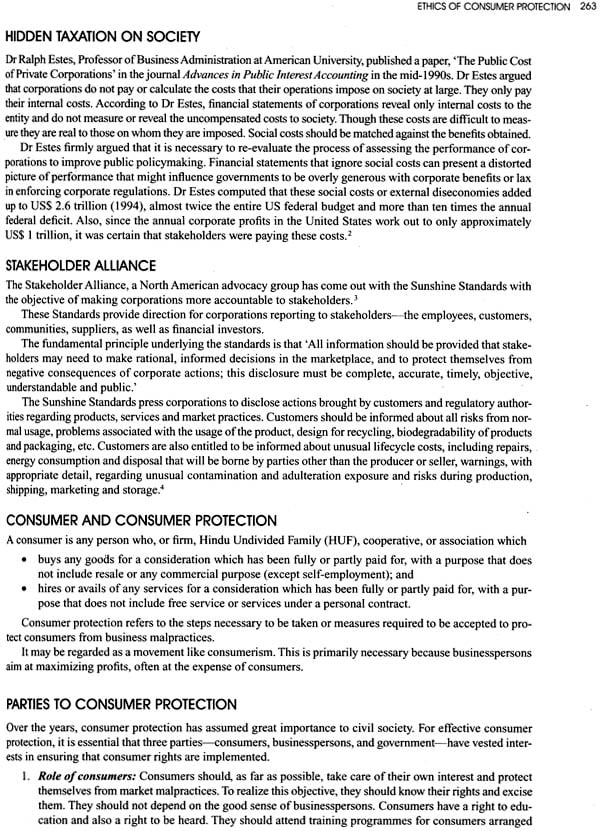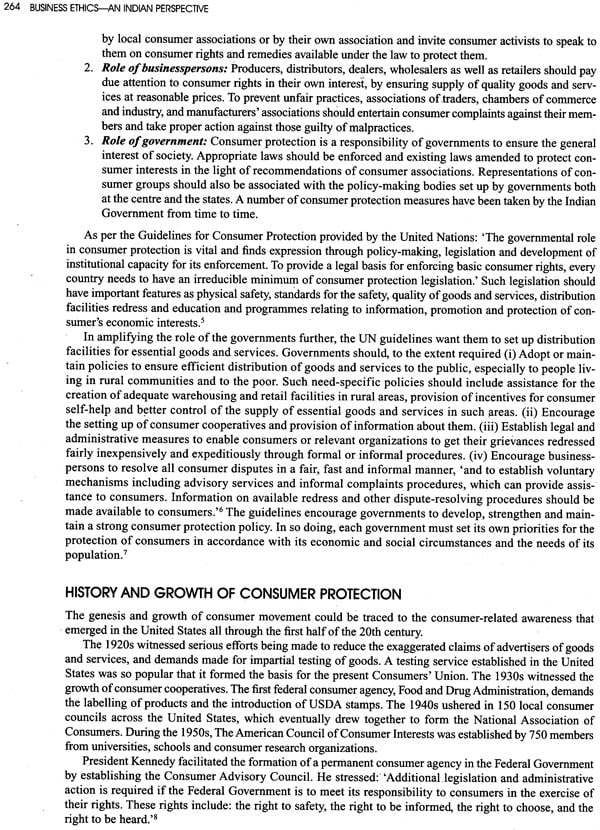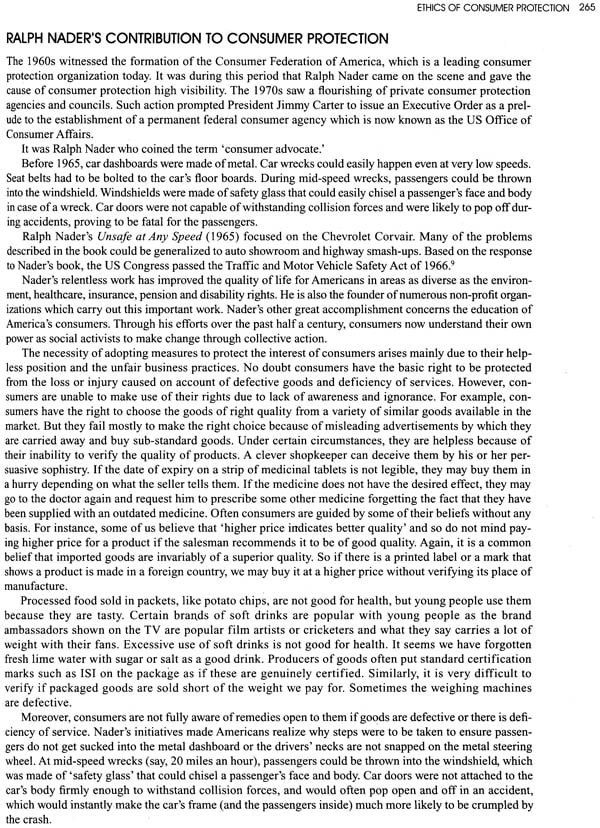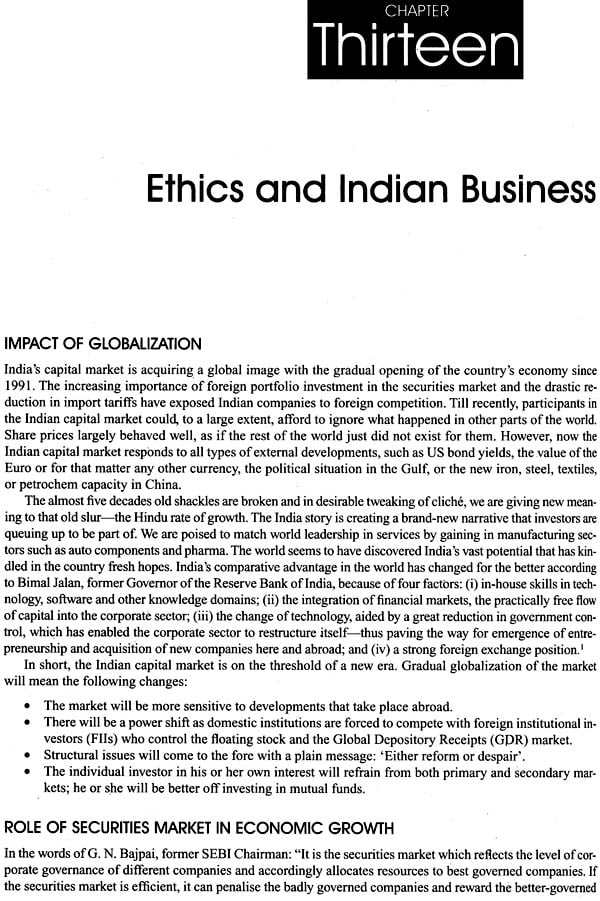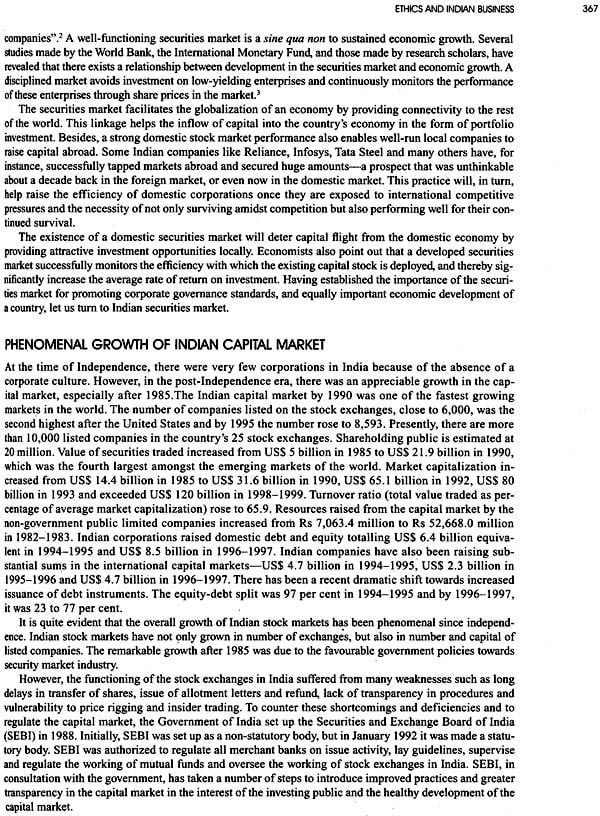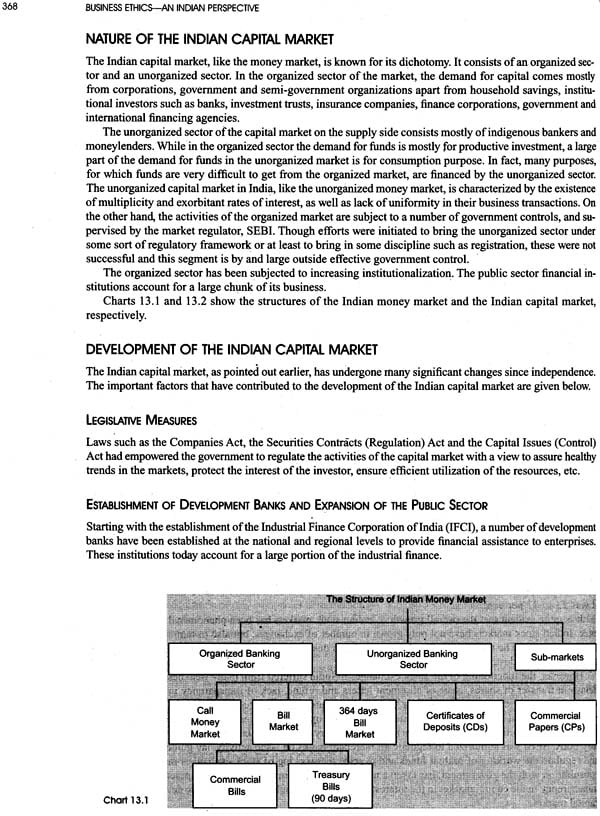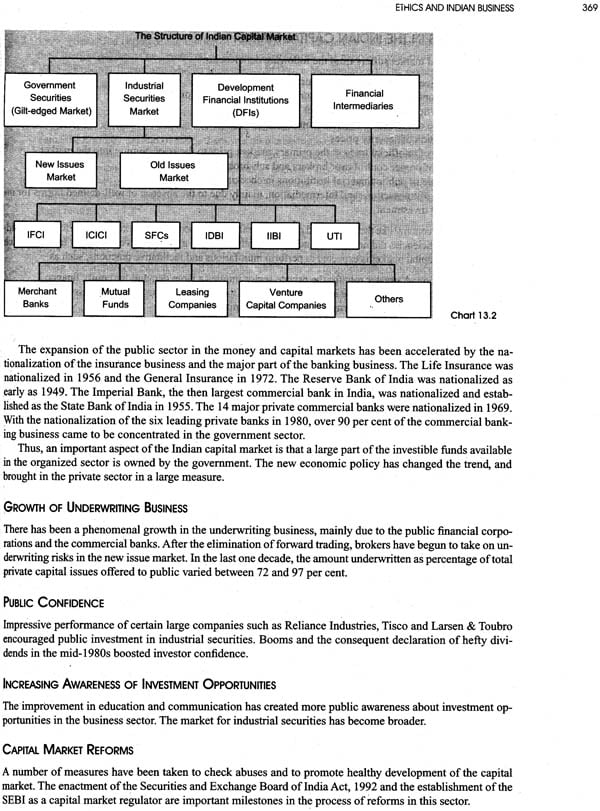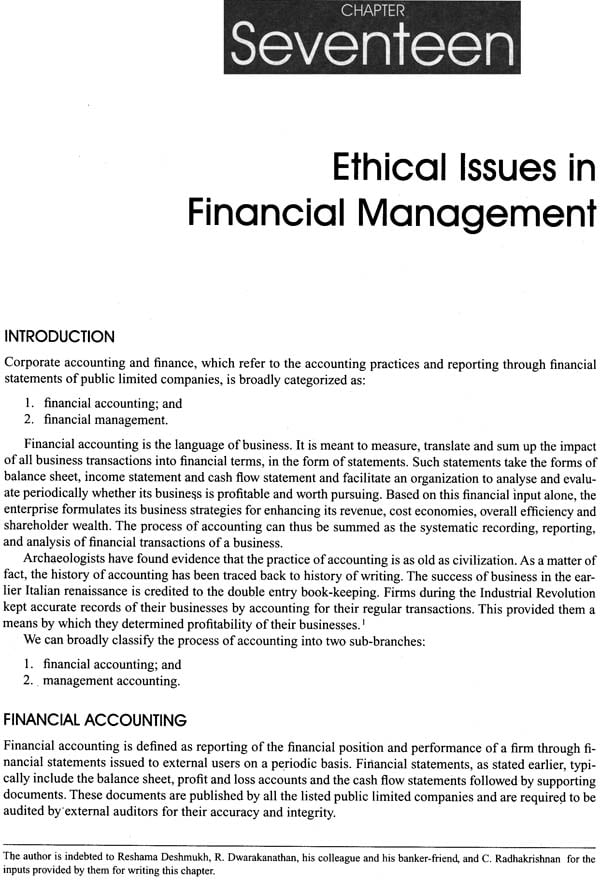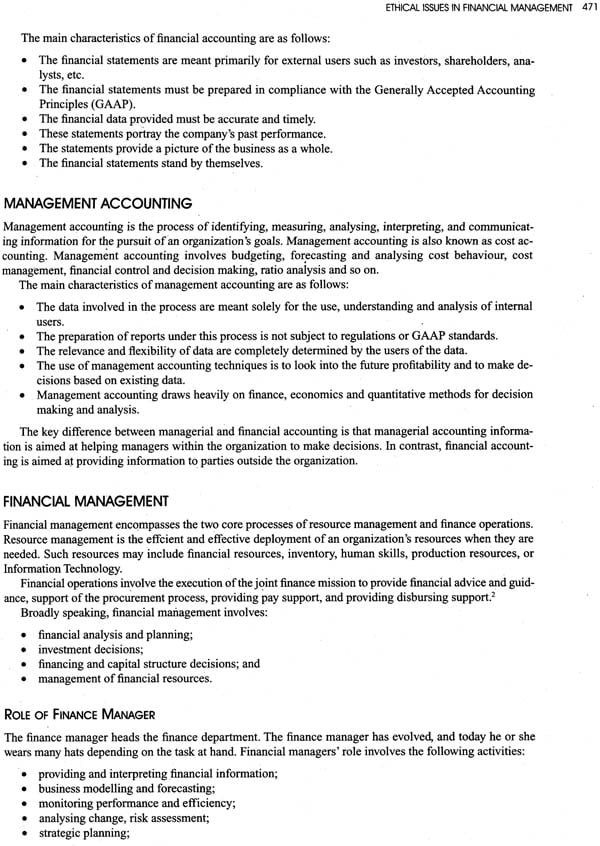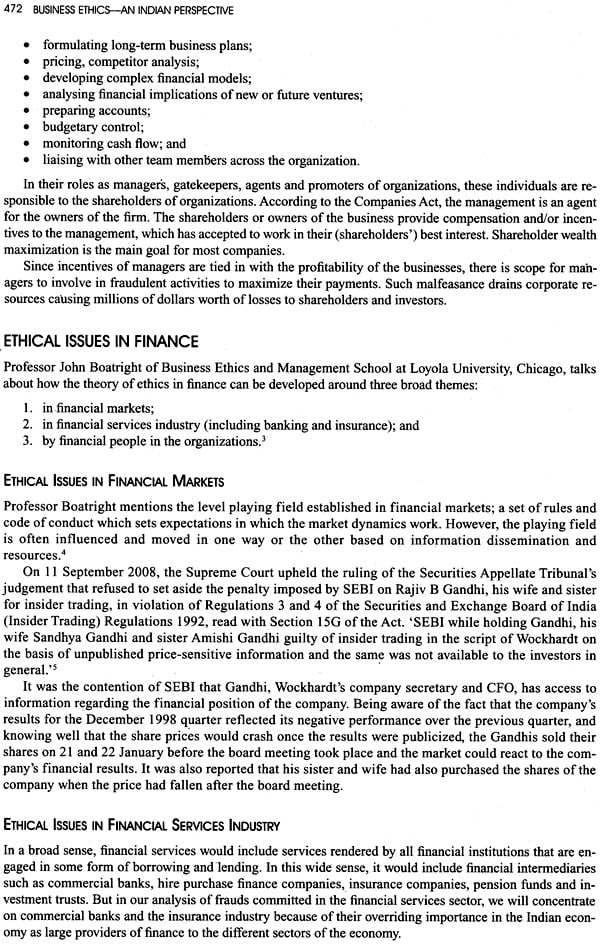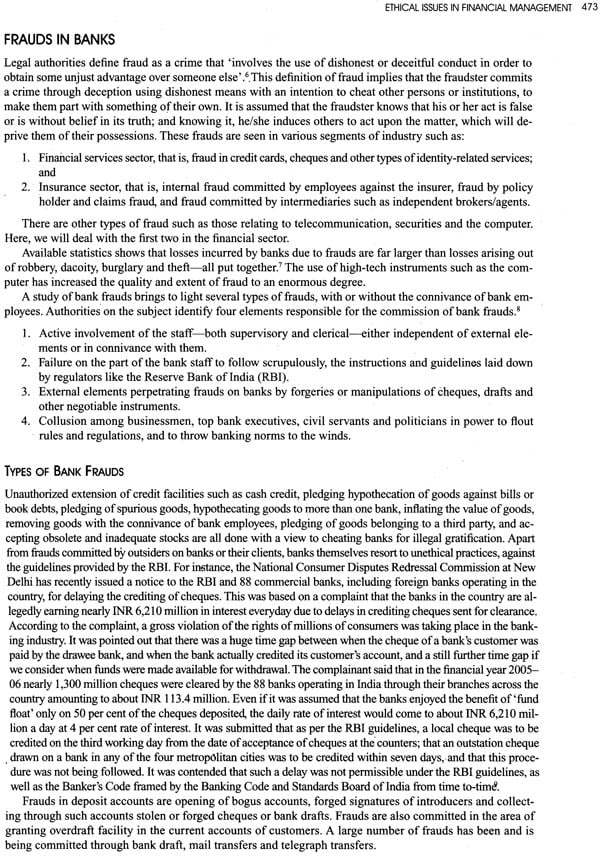
Business Ethics: An Indian Perspective (Second Edition)
Book Specification
| Item Code: | NAK022 |
| Author: | A .C Fernando |
| Publisher: | Pearson Dorling Kindersley India Pvt. Ltd. |
| Language: | English |
| Edition: | 2014 |
| ISBN: | 9788131774342 |
| Pages: | 576 (24 B/W Illustrations) |
| Cover: | Paperback |
| Other Details | 11 inch x 9 .0 inch |
| Weight | 1 kg |
Book Description
Business Ethics: An Indian Perspective provides a comprehensive coverage of the theories of business ethics and emphasizes the importance of principles in overcoming moral dilemmas in the business world. Using large number of India-centric case studies and examples, this book helps readers develop the reasoning and analytical skills needed to apply ethical concepts to business. The coverage on the ethical theories underlying business and application in the real world, a special focus on ethical issues in consumer protection and the information technology, sector, and whistle-blowing makes this revised edition highly relevant for students today.
A. C. Fernando has just retired as a senior professor of Economics and Corporate Governance at the Loyola Institute of Business Administration (LIBA), Loyola College, Chennai. He was also the director of the Loyola Centre for Business Ethics and Corporate Governance, a centre of excellence established by LIBA. Professor Fernando has been teaching economics-related subjects and corporate governance at LIBA since 1990. He was also the editor of Management Matters, a bi-annual business journal of the institution.
Professor Fernando obtained a postgraduate degree in economics from the University of Madras, following which he was appointed a lecturer in the Department of Economics, Sophia College, Bombay, where he taught all courses relating to economics for fifteen years. He was also associated with the University of Bombay where he taught public finance for a couple of years at the postgraduate level and pursued research for a couple of years. Concurrently, he also conducted a socioeconomic survey on Catholic orphanages for Misereor and worked as a consultant in the industry.
Subsequently, Professor Fernando moved to Chennai as the director of the Training division of Datamatics Corporation, Chennai, where he designed and conducted several short-term non-formal management and other inter-disciplinary programmes. Having spent a decade as a non-formal educational administrator, he joined a large Chennai-based industrial conglomerate as the corporate manager, Publicity and Public Relations, and the editor of their world-renowned industrial directory, a position he held for almost ten years. During this time, he continued to teach management courses as visiting faculty at the University of Madras, the Institute of Chartered Accountants of India, Institute of Company Secretaries of India, the Institute of Bankers and LIBA.
He has co-authored six books on economics; edited three issues of a prestigious industrial directory, Kothari's Industrial Directory of India, apart from several articles on management matters; authored articles on education, economics, management and corporate governance; which have been published by frontline publications including The Hindu. His latest Book – Corporate Governance; Business Ethics; Business Environment; Corporate Ethics, Governance and Social Responsibility – have been well-received by instructors and students in institutes and universities across the country.
A communicator par excellence, Professor Fernando's expertise in business ethics and corporate governance stems from his fifty-year long experience of teaching the subject as well as his incisive knowledge of the functioning of the Indian economy.
When I was asked to handle the course on Business Ethics for students of postgraduate diploma in Business Management at Loyola Institute of Business Administration (LIBA). I came across a serious problem. While there were a few good books on the subject published from abroad, Indian books on Business Ethics with Indian illustrations and case studies were very limited. The available books were not properly structured – some of them did not touch upon the theoretical aspects of business ethics, while others had pieced together a few essays on some issues related to the subject warranted a well-written India-centric book that would help students, and to some extent, the teachers. The lack of adequate number of text books is understandable because the subject of business ethics as a core course for management students is hardly two decades old. At the same time, more and B-School have started introducing business ethics as a core or an elective course. Hence, I felt a vital need for a good book on Business Ethics, which focuses on the Indian perspective, and the idea of writhing this book was born.
There was also another reason, rather a justification, for writing this book on business ethics, my well-received book on corporate governance brought out by the same publisher, Pearson Education, discusses Corporate Social Responsibility Business Ethics, Corporate Governance etc. That are generally included in any book on Business Ethics. Follow-up efforts to improve future editions of Corporate Governance threw up new additional material that appeared common to both the subjects. In the meantime, the subjects of business ethics, corporate social responsibility and corporate Governance were assuming greater importance in the media as well as academia with several articles and research papers being published in newspapers and journals. The idea of writing this book had thus become irresistible!
While working on the chapterisation of the book-I should add in all humility – the course content that was followed by my predecessor at LIBA, Dr C. L. Ramakrishnan, former Director General of Police, Tamil Nadu looked well-conceived for me to emulate to a certain extent. By adding a few more topics, the book looked complete in all respects. I take this opportunity to salute Dr C. L. Ramakrishna, an able and highly ethical police officer, for showing me a clear path in writing this book. I have borrowed some of his ideas at several places in the book. Since some of his imaginative ideas were presented more in power-points than as published text, I had to elaborate many of the points he had touched upon in his presentation.
A book of this sort, with the need to explain much of philosophy and ethical dilemmas, could not have come from one who has been a student and teacher of economics all his life. I have generously drawn a lot of ideas, theories, and real life cases from many authors, some of whom lent their original contributions to the subject of Business Ethics that has been and still keeps evolving. Wherever I have borrowed from their works, I have acknowledged. If I have omitted to give credit to any source, it is needless to say it is unintentional and due to sheer lapse of memory. Humility is a virtue I cherish most, it is due to my fault and I have no hesitation in saying "Mea culpa".
I have made an effort to make this book useful for students taking the course on Business Ethics. My publisher has also made serious efforts to get reviews of my peers to improve the coverage and quality of the book. I have carried out to the extent Possible, all their suggestions. I seek the opinion and feedback of hte academic community to make the future editions of this of this book more acceptable to all stakeholders.
| Part 1 | Theories underlying the Issues and Problems of Business Ethics | |
| Chapter1 | Business Ethics: An overview | 4 |
| Chapter2 | Concepts and Theories of Business Ethics | 26 |
| Chapter3 | Ethical Dilemmas, Sources and Their Resolutions | 57 |
| Chapter4 | Ethical Decision-making in Business | 75 |
| Chapter5 | Globalization and Business Ethics | 101 |
| Chapter6 | Creating an ethical Organization | 128 |
| Part 2 | How can Ethics Be Applied In Day-To-Day Business | |
| Chapter 7 | corporate Ethics: Good Governance | 150 |
| Chapter8 | Corporate Ethics: Investors' Rights, Privileges, Problems and Protection | 195 |
| Chapter9 | Handmaid of Ethics: Corporate Social Responsibility | 223 |
| Chapter10 | Ethics of Consumer Protection | 262 |
| Chapter11 | Environmental Ethics | 295 |
| Chapter12 | Role of Various Agencies in Ensuring Ethics in Corporations | 336 |
| Chapter13 | Ethics and Indian Business | |
| Part 3 | Functional Areas in Business Management | 366 |
| Chapter 14 | Marketing Ethics | 397 |
| Chapter15 | Ethical Issues in Human Resource Management | 426 |
| Chapter16 | It Industry: An Overview and Ethical Perspective | 448 |
| Chapter17 | Ethical Issues in Financial Management | 470 |
| Chapter18 | Whistle Blowing | 492 |
| Chapter19 | Corruption In India | 507 |
| Appendix | 515 | |
| Glossary | 523 | |
| Bibliograph | 541 | |
| Index | 545 |
